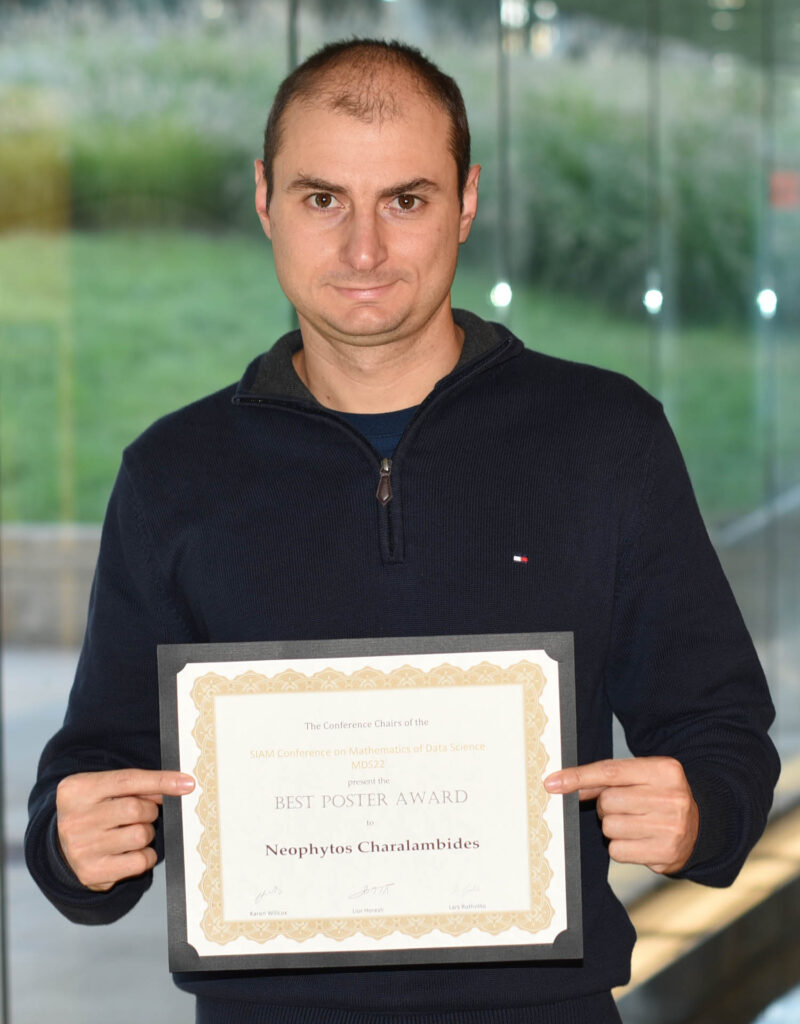Neophytos Charalambides receives Best Poster Award for research in the area of Data Science

Doctoral student Neophytos Charalambides received a Best Poster award from the 2022 SIAM Conference on Mathematics of Data Science (MDS22) for research describing a new approach for compressing systems of linear equations. The resulting algorithm can be applied to a wide range of data science applications.
According to Neo, the work deals primarily with a fundamental problem and operation in linear algebra – that of multiplying two matrices (tables comprised of numbers), which appears in many scientific and engineering disciplines. Though seemingly a relatively easy operation to carry out, with the advent of large data sets, it can take a lot of time to perform.
Since 1969, says Neo, when Volker Strassen first overcame the “cubic barrier” of matrix multiplication, there have been a lot of developments surrounding this problem. In this work, a randomized approach is considered which compresses the matrices in such a way that high-quality approximations of their product are guaranteed; in terms of the Euclidean norm.
The approach draws ideas primarily from Randomized Numerical Linear Algebra, and is also related to graph compression and sparsification. Specifically, it is a direct generalization of a known technique for compressing systems of linear equations, as well as the state-of-the-art approach for sparsifying large graphs through what is known as “effective resistances.”
The algorithm can be used in a variety of applications, such as extracting useful information from large networks, or even understanding the orbits of celestial bodies.
The research was conducted by Neo along with his advisor Prof. Alfred Hero, and Prof. Mert Pilanci at Stanford University. The poster was titled “Approximate Matrix Multiplication and Laplacian Sparsifiers”.
Neo received two bachelor’s degrees (pure mathematics and electrical engineering) and two master’s degrees (mathematics and ECE) from Michigan, and a master’s degree in pure mathematics from Imperial College London.
The Society for Industrial and Applied Mathematics (SIAM), in existence since 1952, has the goal of promoting “research that will lead to effective new mathematical and computational methods and techniques for science, engineering, industry, and society.”
 MENU
MENU 
